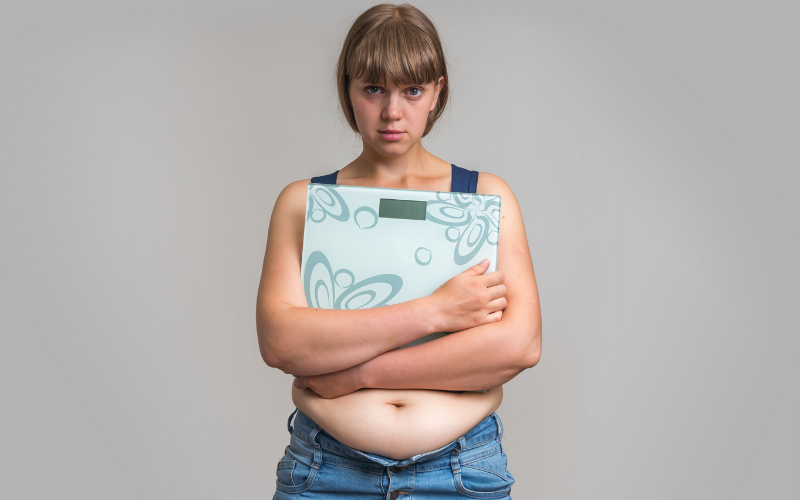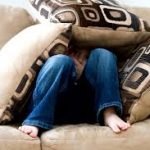Menopause and insomnia: What is the link?
Original Post | Medical News Today
After menopause, a person’s ovaries produce much lower amounts of certain hormones, including estrogen and progesterone. For some, this transition comes with sleep disturbances.
Insomnia refers to the difficulty falling or staying asleep. It is a commonTrusted Source experience in menopause and may occur as a result of hormonal changes.
It may also be a secondary result of the other symptoms of menopause, such as hot flashes.
Read on for more information on menopause and insomnia, including why it happens, how long it may last, and what medical treatments and complementary therapies are available.
Sex and gender exist on spectrums. This article will use the terms “male,” “female,” or both to refer to sex assigned at birth. Click here to learn more.
Can menopause cause insomnia?

Yes – insomnia is a frequent occurrence during perimenopause and menopause. Some people only experience mild or occasional sleep disturbances, but for others, the insomnia can be severe.
According to a 2018 article, 26%Trusted Source of people going through perimenopause and menopause experience insomnia that affects their daily activities.
In females, the rate of insomnia increases with age. According to the Study of Women’s Health Across the Nation (SWAN)Trusted Source, the prevalence of sleep disorders is as follows:
- 16–42% in premenopause
- 39–47% in perimenopause
- 35–60% in postmenopause
Why does menopause cause insomnia?
Research on the exact cause of insomnia during menopause does not point to one clear cause. Several things may contribute to it, including:
Hormonal changes
Some evidence suggests that low hormone levels can increase the likelihood of insomnia during menopause.
According to the SWANTrusted Source, previous longitudinal studies have found a correlation between lower levels of estradiol and poorer sleep. This is especially true if the decline in hormones happens quickly, as it does after a person undergoes surgery to remove the ovaries.
Hot flashes
Sometimes, insomnia happens during menopause because of hot flashes or night sweats. These symptoms can disrupt sleep, causing frequent waking.
Hot flashes, which are one of the so-called vasomotor symptoms, are common in menopause, affecting 75–85%Trusted Source of people going through menopause.
Hot flashes cause a sudden sense of heat around the face and neck and often occur with sweating and a fast heartbeat.
Reduction in melatonin
Melatonin is a hormone that plays a key role in the sleep-wake cycle, helping keep people asleep. It is especially important at the start of sleep.
However, melatonin levels appear to decrease with age, which may cause sleep disturbances.
It is not clear whether there is a link between menopause and a decline in melatonin. Some evidenceTrusted Source suggests that there is and that individuals during postmenopause have less melatonin than those during premenopause.
Mental health
For many people, menopause signals a major change. It is also a sign that a person is getting older. This, along with the symptoms of menopause, can have an impact on an individual’s mental health.
Many mental health conditions, including anxiety and depression, affect sleep. However, insomnia can also make depression more likelyTrusted Source. The relationship between sleep and mood is bidirectional, and changing hormone levels can also play a role.https://a76fa006e565d376844b91a5d5a8864a.safeframe.googlesyndication.com/safeframe/1-0-38/html/container.html
How long will insomnia last?
How long insomnia lasts during and after menopause depends on many factors. Every person who goes through menopause has a different experience. Some will find that the symptoms last longer than they do for others.
A person’s hormone levels can start to change 7–10 yearsTrusted Source before a person’s last period. After this point, people can continue to have symptoms such as hot flashes for several years.
Estradiol levels continue to decline for the first 1–6 years in early postmenopause, which may result in continued symptoms.
It is of note, however, that there are treatments and therapies available that can reduce sleep difficulties. It is also important to address any other factors that may be contributing to poor sleep quality.powered by Rubicon Project
Medical treatments for insomnia during menopause
The main treatment for menopause-related insomnia is hormone therapy. This works by replacing the lost hormones, which can improve many menopause symptoms. People may find that they sleep better and experience fewer hot flashes while using this treatment.
Hormone therapy is available in topical gels, creams, and patches. People can also take it internally via tablets or an implant.
Another potential treatment is a low-dose selective serotonin reuptake inhibitor (SSRI).
Doctors typically prescribe SSRIs for mental health conditions, but these medications can also reduce the frequency of hot flashes, which may help with sleep. However, it is of note that insomnia can also occur as a side effect of SSRIs.
For those who are experiencing mood changes, anxiety, or depression, talk therapy may help them understand and cope with these feelings. Lessening the impact of mental health conditions may also benefit sleep.
Doctors rarely prescribe sleeping pills to treat insomnia, as these can have serious side effects. Many are also addictive and are not suitable for managing a long-term sleep problem.
Natural and complementary therapies
According to a 2019 review, no study has found that herbal or dietary supplements consistently help with menopause symptoms. However, there are many other ways people can try to make sleep easier during menopause.
Below are some evidence-based approaches:
Avoiding caffeine, nicotine, and alcohol
Smoking, consuming caffeine, and drinking alcohol can all make it more difficult to sleep. While it may seem that alcohol makes people drowsy, even a small amount reduces overall sleep quality.
A person can try to reduce or avoid any of these, especially in the afternoon and evening.
Aromatherapy
Aromatherapy may be helpful in inducing relaxation and reducing hot flashes.
In a clinical trial involving 100 women, researchers found that after 12 weeks of lavender essential oil inhalation, the participants had 50% fewer hot flashes.
Other studies have also found that aromatherapy together with massage was more effective than massage or aromatherapy by themselves.
Hypnosis
A 2019 review notes that there is evidence that hypnosis may reduce the frequency and severity of hot flashes by up to 50%.
Moreover, for people whose insomnia results from hot flashes, hypnosis may be a helpful complementary treatment.
Yoga
Some studies have found that yoga has a beneficial impact on the psychological symptoms of menopause. If a person is having difficulty sleeping due to stress or anxiety, yoga practice may help reduce these symptoms.
However, the results of other studies on yoga have been mixed. This is partly because there are many styles of yoga and numerous ways of practicing, which may lead to inconsistent results.





